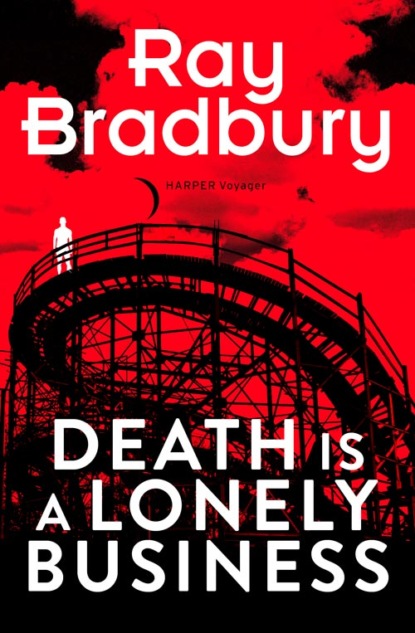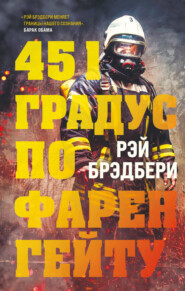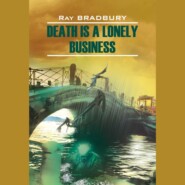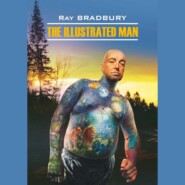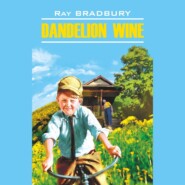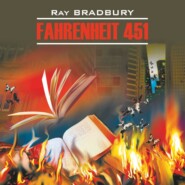По всем вопросам обращайтесь на: info@litportal.ru
(©) 2003-2024.
✖
Death is a Lonely Business
Настройки чтения
Размер шрифта
Высота строк
Поля
It was where the old men gathered.
It was a small, dim shop facing the railway tracks where candy, cigarettes, and magazines were sold and tickets for the big red trolley cars that rushed from L.A. to the sea.
The tobacco-shed-smelling place was run by two nicotine-stained brothers who were always sniveling and bickering at each other like old maids. On a bench to one side, ignoring the arguments like crowds at a boring tennis match, a nest of old men stayed by the hour and the day, lying upward about their ages. One said he was eighty-two. Another bragged that he was ninety. A third said ninety-four. It changed from week to week, as each misremembered last month’s lie.
And if you listened, as the big iron trains rolled by, you could hear the rust flake off the old men’s bones and snow through their bloodstreams to shimmer for a moment in their dying gaze as they settled for long hours between sentences and tried to recall the subject they had started on at noon and might finish off at midnight, when the two brothers, bickering, shut up shop and went away sniveling to their bachelor beds.
Where the old men lived, nobody knew. Every night, after the brothers grouched off into the dark, the old men dispersed like tumbleweeds, blown every which way in the salt wind.
I stepped into the eternal dusk of the place and stood staring at the bench where the old men had sat since the beginning of time.
There was an empty place between the old men. Where there had always been four, now there were only three, and I could tell from their faces that something was wrong.
I looked at their feet, which were surrounded by not only scatterings of cigar ash, but a gentle snowfall of strange little paper-punchouts, the confetti from hundreds of trolley line tickets in various L and X and M shapes.
I took my hand out of my pocket and compared the now almost dried soggy mess with the snow on the floor. I bent and picked some of it up and let it sift from my fingers, an alphabet down the air.
I looked at the empty place on the bench.
“Where’s that old gent—?” I stopped.
For the old men were staring at me as if I had fired a gun at their silence. Besides, their look said, I wasn’t dressed right for a funeral.
One of the oldest lit his pipe and at last, puffing it, muttered, “He’ll be along. Always does.”
But the other two stirred uncomfortably, their faces shadowed.
“Where,” I dared to say, “does he live?”
The old man stopped puffing. “Who wants to know?”
“Me,” I said. “You know me. I’ve come in here for years.”
The old men glanced at each other, nervously.
“It’s urgent,” I said.
The old man stirred a final time.
“Canaries,” murmured the oldest man.
“What?”
“Canary lady.” His pipe had gone out. He lit it again, his eyes troubled. “But don’t bother him. He’s all right. He’s not sick. He’ll be along.”
He was protesting too much, which made the other old men writhe slowly, secretly, on the bench.
“His name—?” I asked.
That was a mistake. Not to know his name! My God, everyone knew that! The old men glared at me.
I flushed and backed off.
“Canary lady,” I said, and ran out the door to be almost killed by an arriving Venice Short Line train thirty feet from the shop door.
“Jackass!” cried the motorman, leaning out and waving his fist.
“Canary lady!” I yelled, stupidly, shaking my fist to show I was alive.
And stumbled off to find her.
I knew her address from the sign in her window.
canaries for sale.
Venice was and is full of lost places where people put up for sale the last worn bits of their souls, hoping no one will buy.
There is hardly an old house with unwashed curtains which does not sport a sign in the window.
1927 NASH. REASONABLE. REAR.
Or
BRASS BED, HARDLY USED. CHEAP. UPSTAIRS.
Walking, one thinks, which side of the bed was used, and how long on both sides, and how long on both sides, and how long never again, twenty, thirty years ago?
Or VIOLINS, GUITARS, MANDOLINS.
And in the window ancient instruments strung not with wire or cat-gut but spiderwebs, and inside an old man crouched over a workbench shaping wood, his head always turned away from the light, his hands moving; someone left over from the year when the gondolas were stranded in backyards to become flower planters.
How long since he had sold a violin or guitar?
Knock at the door, the window. The old man goes on cutting and sandpapering, his face, his shoulders shaking. Is he laughing because you tap and he pretends not to hear?
You pass a window with a final sign.
ROOM WITH A VIEW.
The room looks over the sea. But for ten years no one has ever been up there. The sea might as well not exist.
I turned a final corner and what I was searching for was there.
It hung in the sunbrowned window, its fragile letters drawn in weathered lead pencil, as faint as lemon juice that had burned itself out, self-erased, oh God, some fifty years ago!
canaries for sale.
Yes, someone half a century ago had licked a pencil tip, lettered the cardboard and hung it to age, fixed with flypaper adhesive tape, and gone upstairs to tea in rooms where dust lacquered the banister in gums, choked the lightbulbs so they burned with an Oriental light; where pillows were balls of lint and shadows hung in closets from empty racks.





